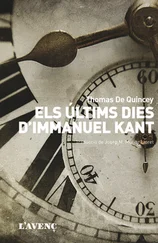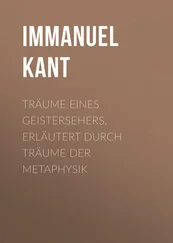This important change in the field of the sciences, this loss of its fancied possessions, to which speculative reason must submit, does not prove in any way detrimental to the general interests of humanity. The advantages which the world has derived from the teachings of pure reason are not at all impaired. The loss falls, in its whole extent, on the monopoly of the schools, but does not in the slightest degree touch the interests of mankind. I appeal to the most obstinate dogmatist, whether the proof of the continued existence of the soul after death, derived from the simplicity of its substance; of the freedom of the will in opposition to the general mechanism of nature, drawn from the subtle but impotent distinction of subjective and objective practical necessity; or of the existence of God, deduced from the conception of an ens realissimum — the contingency of the changeable, and the necessity of a prime mover, has ever been able to pass beyond the limits of the schools, to penetrate the public mind, or to exercise the slightest influence on its convictions. It must be admitted that this has not been the case and that, owing to the unfitness of the common understanding for such subtle speculations, it can never be expected to take place. On the contrary, it is plain that the hope of a future life arises from the feeling, which exists in the breast of every man, that the temporal is inadequate to meet and satisfy the demands of his nature. In like manner, it cannot be doubted that the clear exhibition of duties in opposition to all the claims of inclination, gives rise to the consciousness of freedom, and that the glorious order, beauty, and providential care, everywhere displayed in nature, give rise to the belief in a wise and great Author of the Universe. Such is the genesis of these general convictions of mankind, so far as they depend on rational grounds; and this public property not only remains undisturbed, but is even raised to greater importance, by the doctrine that the schools have no right to arrogate to themselves a more profound insight into a matter of general human concernment than that to which the great mass of men, ever held by us in the highest estimation, can without difficulty attain, and that the schools should, therefore, confine themselves to the elaboration of these universally comprehensible and, from a moral point of view, amply satisfactory proofs. The change, therefore, affects only the arrogant pretensions of the schools, which would gladly retain, in their own exclusive possession, the key to the truths which they impart to the public.
Quod mecum nescit, solus vult scire videri.
At the same time it does not deprive the speculative philosopher of his just title to be the sole depositor of a science which benefits the public without its knowledge — I mean, the Critique of Pure Reason. This can never become popular and, indeed, has no occasion to be so; for finespun arguments in favour of useful truths make just as little impression on the public mind as the equally subtle objections brought against these truths. On the other hand, since both inevitably force themselves on every man who rises to the height of speculation, it becomes the manifest duty of the schools to enter upon a thorough investigation of the rights of speculative reason and, thus, to prevent the scandal which metaphysical controversies are sure, sooner or later, to cause even to the masses. It is only by criticism that metaphysicians (and, as such, theologians too) can be saved from these controversies and from the consequent perversion of their doctrines. Criticism alone can strike a blow at the root of materialism, fatalism, atheism, free-thinking, fanaticism, and superstition, which are universally injurious — as well as of idealism and scepticism, which are dangerous to the schools, but can scarcely pass over to the public. If governments think proper to interfere with the affairs of the learned, it would be more consistent with a wise regard for the interests of science, as well as for those of society, to favour a criticism of this kind, by which alone the labours of reason can be established on a firm basis, than to support the ridiculous despotism of the schools, which raise a loud cry of danger to the public over the destruction of cobwebs, of which the public has never taken any notice, and the loss of which, therefore, it can never feel.
This critical science is not opposed to the dogmatic procedure of reason in pure cognition; for pure cognition must always be dogmatic, that is, must rest on strict demonstration from sure principles a priori — but to dogmatism, that is, to the presumption that it is possible to make any progress with a pure cognition, derived from (philosophical) conceptions, according to the principles which reason has long been in the habit of employing — without first inquiring in what way and by what right reason has come into the possession of these principles. Dogmatism is thus the dogmatic procedure of pure reason without previous criticism of its own powers, and in opposing this procedure, we must not be supposed to lend any countenance to that loquacious shallowness which arrogates to itself the name of popularity, nor yet to scepticism, which makes short work with the whole science of metaphysics. On the contrary, our criticism is the necessary preparation for a thoroughly scientific system of metaphysics which must perform its task entirely a priori , to the complete satisfaction of speculative reason, and must, therefore, be treated, not popularly, but scholastically. In carrying out the plan which the Critique prescribes, that is, in the future system of metaphysics, we must have recourse to the strict method of the celebrated Wolf, the greatest of all dogmatic philosophers. He was the first to point out the necessity of establishing fixed principles, of clearly defining our conceptions, and of subjecting our demonstrations to the most severe scrutiny, instead of rashly jumping at conclusions. The example which he set served to awaken that spirit of profound and thorough investigation which is not yet extinct in Germany. He would have been peculiarly well fitted to give a truly scientific character to metaphysical studies, had it occurred to him to prepare the field by a criticism of the organum, that is, of pure reason itself. That be failed to perceive the necessity of such a procedure must be ascribed to the dogmatic mode of thought which characterized his age, and on this point the philosophers of his time, as well as of all previous times, have nothing to reproach each other with. Those who reject at once the method of Wolf, and of the Critique of Pure Reason, can have no other aim but to shake off the fetters of science, to change labour into sport, certainty into opinion, and philosophy into philodoxy.
In this second edition, I have endeavoured, as far as possible, to remove the difficulties and obscurity which, without fault of mine perhaps, have given rise to many misconceptions even among acute thinkers. In the propositions themselves, and in the demonstrations by which they are supported, as well as in the form and the entire plan of the work, I have found nothing to alter; which must be attributed partly to the long examination to which I had subjected the whole before offering it to the public and partly to the nature of the case. For pure speculative reason is an organic structure in which there is nothing isolated or independent, but every single part is essential to all the rest; and hence, the slightest imperfection, whether defect or positive error, could not fail to betray itself in use. I venture, further, to hope, that this system will maintain the same unalterable character for the future. I am led to entertain this confidence, not by vanity, but by the evidence which the equality of the result affords, when we proceed, first, from the simplest elements up to the complete whole of pure reason and, and then, backwards from the whole to each part. We find that the attempt to make the slightest alteration, in any part, leads inevitably to contradictions, not merely in this system, but in human reason itself. At the same time, there is still much room for improvement in the exposition of the doctrines contained in this work. In the present edition, I have endeavoured to remove misapprehensions of the aesthetical part, especially with regard to the conception of time; to clear away the obscurity which has been found in the deduction of the conceptions of the understanding; to supply the supposed want of sufficient evidence in the demonstration of the principles of the pure understanding; and, lastly, to obviate the misunderstanding of the paralogisms which immediately precede the rational psychology. Beyond this point — the end of the second main division of the “Transcendental Dialectic”— I have not extended my alterations, 10 partly from want of time, and partly because I am not aware that any portion of the remainder has given rise to misconceptions among intelligent and impartial critics, whom I do not here mention with that praise which is their due, but who will find that their suggestions have been attended to in the work itself.
Читать дальше












